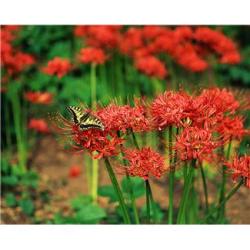Source Institutions
Source Institutions
Add to list Go to activity
Activity link broken? See if it's at the internet archive

In this activity, learners are divided into teams. Half the team works as "collectors" and the other half works as "curators." Collectors go outside and search for various organisms as well as the evolutionary and ecological relationships between the organisms. Collectors earn points based on the complexity of the organisms they find. Examples include consumer, bryophyte, spores, simple food chains, communities, etc. The list of organisms to find can be tailored to the local environment learners will investigate. The curators identify and display the items in folders (animals, fungi, and protists are drawn, not collected). This activity can be used at the end of biology class and/or to assess learners' knowledge of classification, biology of organisms, evolution, ecological relationships, microscope use, and use of research tools.
- 30 to 45 minutes
- 2 to 4 hours
- $10 - $20 per group of students
- Ages 14 - 18
- Activity, Lesson/Lesson Plan
- English
Quick Guide
Materials List (per group of students)
- Scavenger Hunt worksheets
- index cards
- colored pencils
- pencils
- plastic baggies
- plastic spoons
- plastic vials
- forceps
- plastic gloves
- labels
- droppers
- scissors
- hand lenses
- folders
- colored markers
- tape
- microscopes
- glass slides
- cover slips
- paper
- field guides
- cameras (optional)
Subjects
-
Life Sciences
-
Diversity of Life
- Plants
- Animals
- Viruses and Bacteria
- Protists and Fungi
- Classification
-
Ecology
- Ecosystems
- Populations
- Energy Flow and Chemical Cycles
-
Evolution
- Evidence for Evolution
-
Heredity and Genetics
- Patterns of Heredity
-
Diversity of Life
-
Mathematics
-
Data Analysis and Probability
- Data Analysis
- Data Collection
-
Data Analysis and Probability
-
The Nature of Science
-
The Scientific Process
- Conducting Investigations
- Gathering Data
- Formulating Explanations
- Communicating Results
-
The Scientific Process
Informal Categories
- Animals
- Collecting
- Nature and Environment
- Outdoor Activity
- Physical Activity
Audience
To use this activity, learners need to:
- see
- read
- be mobile
- touch
Learning styles supported:
- Involves teamwork and communication skills
- Involves hands-on or lab activities
Other
This resource is part of:
Access Rights:
- Free access
By:
- Tinkelenberg, Donnell
Rights:
- All rights reserved, Access Excellence @ the National Health Museum, 2009
